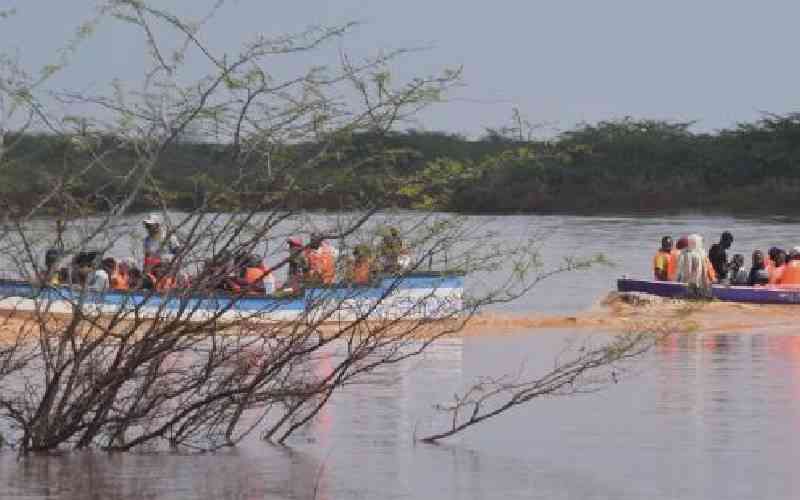×
The Standard e-Paper
Home To Bold Columnists

Asha Mumina Hussein, 27, was at home with her two children when water gushed into her house and completely submerged it. The raging waters swept villages, killed livestock and displaced thousands of people.
After wading through water and debris for hours, Asha and her family were among hundreds of individuals rescued from her house in Abaganda village. She was evacuated to a camp approximately 10 kilometres from her home.